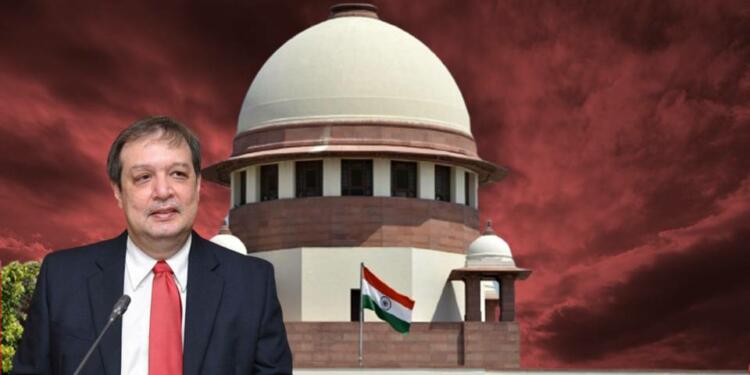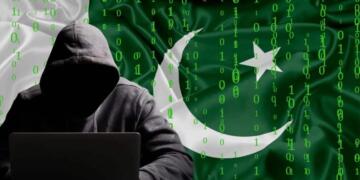Every system has its founding document. If a group of people accept their religion as the guiding force, then it is the holy book of that particular religion that acts as the rule book. But, as liberalism kicked in and adjoining capitalism required every individual to become a consumer, rather than a follower of a particular faith, another document came into action. That document is called Constitution. While consumerism may not be a foundational principle of our Constitution, assimilating every individual into a common fold is.
Justice Pardiwala on Rule of Law
Often there is a quote attributed to Abraham Lincoln, emancipator of black slaves. The quote is “Democracy is a rule of the people, for the people and by the people.” But public opinions do go haywire in the heat of the moment, and that is why Judiciary is there to provide checks and balances. However, that does not mean that it (public opinion) does not matter.
Recently, Justice Pardiwala was invited to deliver the 2nd Justice HR Khanna Memorial National Symposium lecture. The theme was majority opinion vs Rule of Law. Honourable Supreme Court Judge singled out the Rule of Law as the most distinguishing feature of Indian Democracy. He elaborated that the three D’s namely Discussion, Debates and Decree are the reasons why Indian law-making is different from other countries.
Public Opinion should not matter to Judges
Justice Pardiwala then stated that there is no exception to the Rule of Law Principle. He explicitly said that public opinion hardly matters, when it came to judicial verdicts. Pardiwala said, “Judicial verdicts must not be under the influence of public opinion.” However, Justice Pardiwala also put forward the views of Prof KT Shah that real salvation lays in collective wisdom. Going by Prof Shah’s argument, a polity of the state should be tilted in favour of the majority.
But the Honourable Justice Pardiwala stated that a jurist should not go by majority opinion. He seems to be of the opinion that a fine balance between fear of majority tyranny and minority appeasement is provided by the Rule of Law. He substantiated his argument by citing the Indian Constitutional Framework, under which minority does not have to change their way of life to live with the majority. According to Justice Pardiwala, decriminalization of homosexuality in India is the finest example of the prevalence of the rule of law over public opinion.
Rule of Law explained
Everything which the imminent Judge said is grounded in his years of experience watching everything happening in the legal fraternity as well as society. However, there is a very big issue over doing away with public opinion. The contention between Rule of law and public opinion has been a hotly debated topic in the legal arena.
In its raw form, the Rule of Law means institutions should listen to the law rather than dictate it. Max Weber defines it as, “legal domination as an idea of a government of law rather than an idea of men”. This principle is excellent when it comes to lower courts. But, when the matter reaches Courts having appellate Jurisdiction, that is High Courts and Supreme Court in India, the downside of principle starts to show off. In these Courts, judges have to interpret the law in more ways than one and this is where the problem begins.
Interpretative framework and Constitution
The interpretive framework is provided by the Constitution of India. Interestingly, Constitution is also not a rigid document. The intermixing of rigidity and flexibility in the Indian Constitution is well appreciated by legal luminaries. The flexibility has been provided because Bharat is a diverse country. With every 100 km, a new dialect of a language can be found. When the distance is measured in thousand km, the language itself changes.
Similarly, everyone has a different moral system at home. Someone’s moral system is driven by Bhagavad Geeta while others treat the Manu Smriti for the purpose. Similarly, a Muslim prefers Quran over the Christian Bible and vice-versa. Constitution’s flexibility is aimed toward maintaining this inherent difference. The “Constitutional idea of India” seems to be the one where adherents of any religion can feel secure to follow their faith.
Read more: The need for Indianization of the Indian constitution in the BJP rule
Both are not much different
Apparently, all these principles have been penned down by men and women. All those men and women listened to the public by talking with them, listening to their concerns and trying to find out a solution for them. There is a reason why the Drafting committee considered people had vast experience in public lives. The higher the number of years someone spends in public life, the more likely the individual is to understand the “public opinion”. It increases the possibility of “public opinion” being reflected in the rule of law.
Evidently, rule of law is not much different from public opinion. Public opinion needs to be reflected in the codes of law. In current circumstances, the only reason both are treated separately in India is because of the fear of majority tyranny propounded by John Stuart Mill and his liberal brethren. They did not look into the depth of Indic civilisation which treated every community with equal respect.
Read more: Why articles 29 and 30 of the Indian Constitution need to be amended
Not listening is not a solution
Looking at the way different marginalised groups were resuscitated by our forefathers; it seems to be waste of time and other resources to specially put minority protection in the Constitution. Over the period of time, special privilege has become rule of law. People who do not belong to those backgrounds have now started to question them.
There is a need for listening to those dissenting voices as well. Surely, the way in which they express it (through ad hominem attacks) needs to be condemned, but telling them that their opinion does not matter is not a healthy way forward.
Support TFI:
Support us to strengthen the ‘Right’ ideology of cultural nationalism by purchasing the best quality garments from TFI-STORE.COM.



























